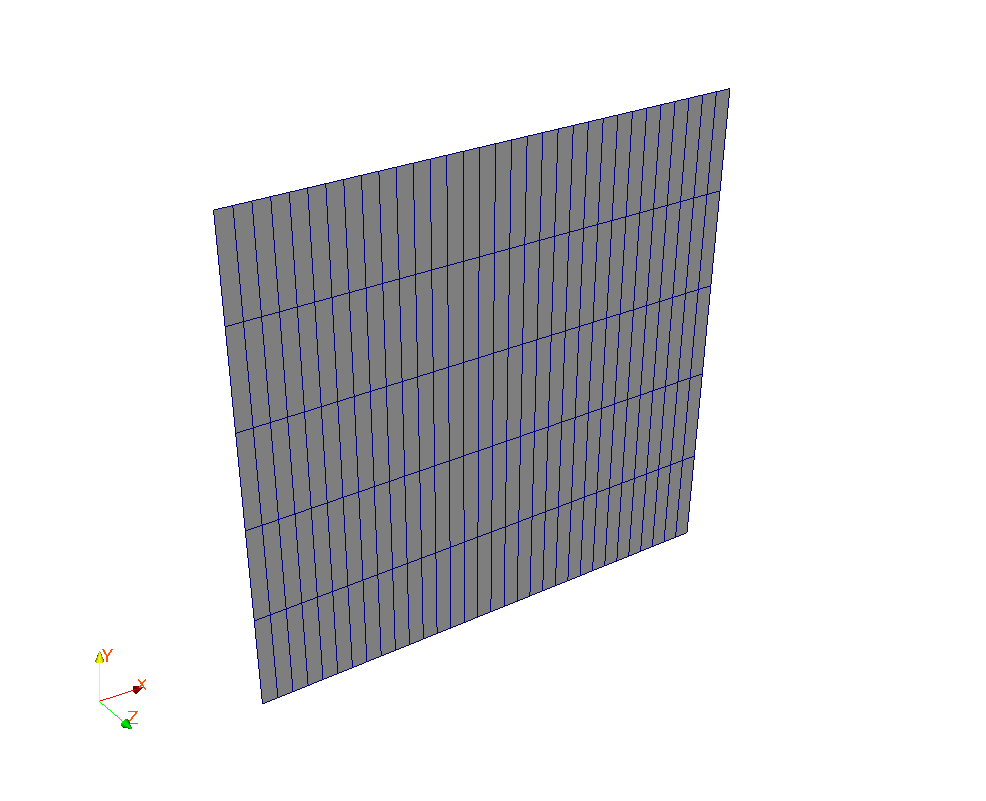12. P modeling#
12.1. Characteristics of modeling#
The modeling is D_ PLAN, only the edge of the frame is represented.
12.2. Characteristics of the mesh#

Number of knots: 620
Number of meshes and types: 160 QUAD8 for the plate and 32 SEG3 for the frame.
12.3. Tested sizes and results#
First calculation (formulation “CONTINUE”, solver “MULT_FRONT”). We’re testing ADAPTATION =” ADAPT_COEF “.
Identification |
Reference type |
Reference value |
Tolerance |
\(\mathit{DX}\) at the point \(A\) instant \(1.0\) |
“SOURCE_EXTERNE” |
2.86E-5 |
5.0% |
\(\mathit{DX}\) at point \(B\) instant \(1.0\) |
“SOURCE_EXTERNE” |
2.72E-5 |
5.0% |
\(\mathit{DX}\) at the point \(C\) instant \(1.0\) |
“SOURCE_EXTERNE” |
2.28E-5 |
5.0% |
\(\mathit{DX}\) at point \(D\) instant \(1.0\) |
“SOURCE_EXTERNE” |
1.98E-5 |
5.0% |
\(\mathit{DX}\) at the point \(E\) instant \(1.0\) |
“SOURCE_EXTERNE” |
1,5E-5 |
5,0% |
We also test the projection by considering the last slave node on the right.
Identification |
Reference type |
Reference value |
Tolerance |
PROJ_Xde CONT_NOEU instant \(1.0\) |
“ANALYTIQUE” |
4.00 E-002 |
1.0E-6% |
PROJ_Yde CONT_NOEU instant \(1.0\) |
“ANALYTIQUE” |
0.00E+000 |
1.0E-6% |
We also test the mixed mode ALGO_CONT =” STANDARD “and ALGO_FROT =”” and =” PENALISATION “and ADAPTATION =” ADAPT_COEF” in a second calculation.
Identification |
Reference type |
Reference value |
Tolerance |
DXde DEPLinstant \(1.0\) |
“ANALYTIQUE” |
2.86E-05 |
|
12.4. notes#
The results obtained are close to the external source to within 5% (code mean). The linear solver has no influence on the results.
The continuous formulation gives results identical to the discrete formulation.